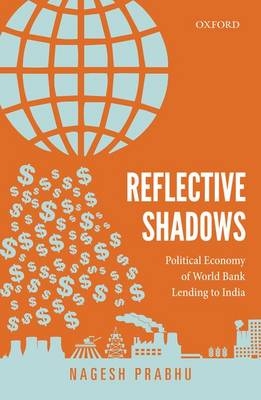
Reflective Shadows
Political Economy of World Bank Lending to India
Seiten
2016
OUP India (Verlag)
978-0-19-946682-5 (ISBN)
OUP India (Verlag)
978-0-19-946682-5 (ISBN)
This book examines the relevance of World Bank's lending to India across sectors and states, highlighting its influence on structural adjustments during the nation's pre- and post-liberalization phases.
India, one of the founding members of the World Bank, is also the Bank's single largest borrower since its inception. There are natural curiosities to know how the relationship between the two has evolved through fluctuations in India's political and economic scenario. Has the World Bank's work in India aligned itself with the country's own developmental agenda-facilitating or impeding the nation's progress? Based on years of grassroots-level experience in political processes, Nagesh Prabhu charts out a comprehensive assessment of various facets of this relationship.
This book examines the relevance of the World Bank's lending to India across sectors and states, highlighting its influence on structural adjustments during the nation's pre- and post-liberalization phases. Bringing out the role of bureaucracy and industry in the country's negotiations with the Bank, the book also focuses on the effectiveness and impact of World Bank aid to India. It presents a factual reading of the Bank's influence within India's policy circles on sensitive macro-level issues, political upheavals, and state-level interventions in the federal context.
India, one of the founding members of the World Bank, is also the Bank's single largest borrower since its inception. There are natural curiosities to know how the relationship between the two has evolved through fluctuations in India's political and economic scenario. Has the World Bank's work in India aligned itself with the country's own developmental agenda-facilitating or impeding the nation's progress? Based on years of grassroots-level experience in political processes, Nagesh Prabhu charts out a comprehensive assessment of various facets of this relationship.
This book examines the relevance of the World Bank's lending to India across sectors and states, highlighting its influence on structural adjustments during the nation's pre- and post-liberalization phases. Bringing out the role of bureaucracy and industry in the country's negotiations with the Bank, the book also focuses on the effectiveness and impact of World Bank aid to India. It presents a factual reading of the Bank's influence within India's policy circles on sensitive macro-level issues, political upheavals, and state-level interventions in the federal context.
Nagesh Prabhu is Deputy Editor at The Hindu, Bengaluru, India. A PhD in political science from the Institute for Social and Economic Change, Bengaluru, he has spent over two decades analysing issues in political economy.
| Erscheinungsdatum | 18.11.2016 |
|---|---|
| Verlagsort | New Delhi |
| Sprache | englisch |
| Maße | 149 x 223 mm |
| Gewicht | 752 g |
| Themenwelt | Wirtschaft ► Betriebswirtschaft / Management ► Finanzierung |
| Betriebswirtschaft / Management ► Spezielle Betriebswirtschaftslehre ► Bankbetriebslehre | |
| Wirtschaft ► Volkswirtschaftslehre ► Makroökonomie | |
| Wirtschaft ► Volkswirtschaftslehre ► Wirtschaftspolitik | |
| ISBN-10 | 0-19-946682-3 / 0199466823 |
| ISBN-13 | 978-0-19-946682-5 / 9780199466825 |
| Zustand | Neuware |
| Haben Sie eine Frage zum Produkt? |
Mehr entdecken
aus dem Bereich
aus dem Bereich
warum unser Geld stirbt und wie Sie davon profitieren
Buch | Hardcover (2024)
FinanzBuch (Verlag)
CHF 41,95
denken und handeln wie ein professioneller Trader
Buch | Softcover (2023)
Vahlen, Franz (Verlag)
CHF 51,65


